In movies and math, there’s a phenomenon called the butterfly effect. A wing flap anywhere in the world can alter everything in the universe. In the case of insurance companies and Hurricane Katrina, the relationship is tighter. A hurricane in New Orleans will affect premiums in New York, Florida, Maine, California, and elsewhere. It’ll take federal and state intervention to mitigate this problem.
Katrina destroyed homes along 70 miles of the Mississippi Gulf Coast. And another storm’s been brewing there ever since: a set of lawsuits against five major insurance companies for shirking post-Katrina claims. The lawsuits, filed by famed litigator Richard Scruggs, cover 4,000 families, including Scruggs’ brother-in-law, Mississippi senator Trent Lott.
All that’s left on the plot of land that was Lott’s home is brown-twig lawn. His insurance company of 40 years — the nation’s largest insurer, State Farm — refused to pay for damage. As with other homes, State Farm contended the cause of the damage was flooding, something the company was not required to cover. That was despite Lott’s 34-year record of opposing corporate regulation.
State Farm didn’t value that record any more than Lott’s home, treating him like all policyholders: badly. This highlights one indisputable fact. Corporate America may generally discriminate against the less wealthy, but nature and insurance companies are equal-opportunity offenders.
Scruggs and other lawyers aren’t suing just about refusal to pay; the suits allege national, systemic fraud and consultant-concocted ways of shirking claims and stretching payment periods.
Scruggs also has evidence of collusion in engineering reports from firms used to evaluate homes for claims. The story goes: Give us (the insurance company) a report we like (that says we don’t have to pay), or keep coming back until you do. With tens of billions of dollars of unpaid claims at stake, it’s a strategy neither insurance nor engineering firms want illuminated in court.
Meanwhile, insurers pulled policies on the Gulf and Atlantic coasts, increased deductibles and premiums, jacked up rates for late payments, and piled more risk on customers. State regulators allowed this because insurance companies moaned that reinsurance companies (which insure insurers but have zero responsibility to consumers) doubled their premiums and they need to share the cost.
The result of all this is that a disaster in 2006 or later will hit policyholders with greater losses than last year. Meanwhile, insurance company profits have nearly doubled, from $22 billion to $43 billion, in the past six years. Even with Katrina, the industry posted its largest surplus in 2005.
Attorney Pamela Stuart has a place in Vero Beach, Florida. Her premiums jumped from $1,300 to $3,000 in the past two years. She battles insurance companies for consumers and has helped neighbors decipher their policies: “I spent years as a defense lawyer. For a layperson, though, reading them is painful.”
Other problems linger. A glaring one in the Katrina suits is what constitutes wind damage versus flood damage. Blaming floods is the industry’s “get out of payment free” card. But for the decimated coastal homes, it’s a seismic leap to proclaim the cause was spontaneous flood rather than wind-caused storm surge.
Another dilemma is the lack of federal oversight of the industry, leaving states hostage to insurers. While many insurers pulled coverage from Louisiana, Alabama, and Florida, remaining ones hiked premiums. When Mississippi attorney general Jim Hood commenced investigations after Katrina, insurance firms threatened to bolt.
It’s one thing when a senator has his house blown down. But, for lasting reform, we need more federal and state supervision and fewer leniencies with reinsurance and insurance-company price hikes and reneged claims.
Additionally, having the Federal Trade Commission regulate insurance companies alongside states would mitigate their power. Congress should pass the honesty bill to show support extending beyond Katrina. The role of insurance companies is to insure. Regardless of weather, they should be held accountable to that promise. That’s what the companies signed up for.
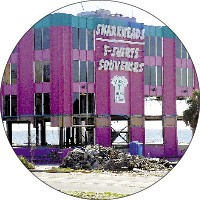 Chris Davis
Chris Davis 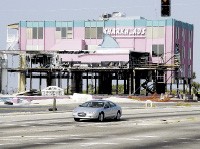 Chris Davis
Chris Davis  Chris Davis
Chris Davis  Chris Davis
Chris Davis 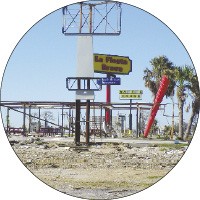 Chris Davis
Chris Davis  Chris Davis
Chris Davis  Chris Davis
Chris Davis 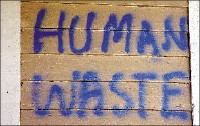 Chris Davis
Chris Davis 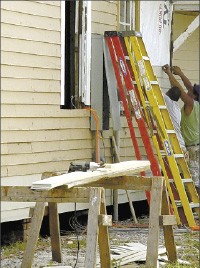 Chris Davis
Chris Davis 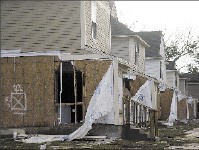 Chris Davis
Chris Davis  Chris Davis
Chris Davis 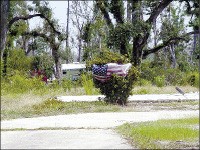 Chris Davis
Chris Davis 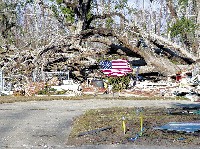 Chris Davis
Chris Davis 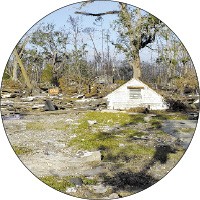 Chris Davis
Chris Davis  Chris Davis
Chris Davis 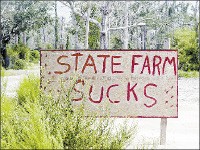 Chris Davis
Chris Davis 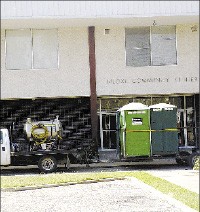 Chris Davis
Chris Davis